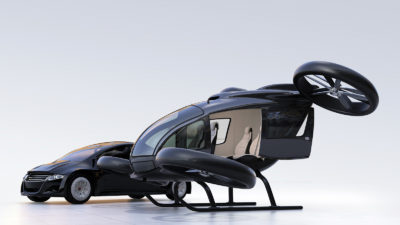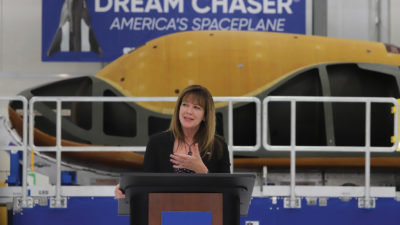Building small satellites for national security
By Debra Werner|January 2020
Daniel Alvarez, 31, space mission program manager at Millennium Space Systems, a Boeing company
Daniel Alvarez created entire cities with Legos, K’nex and Tinker Toys when he was a child. He built a 1-megavolt Tesla coil in eighth grade and a Stirling engine while earning bachelor’s degrees in mechanical engineering and business economics management at the California Institute of Technology. From college, Alvarez went directly to Boeing’s Satellite Development Center in El Segundo, California, to work as a mechanical design engineer. Now, Alvarez leads a multidisciplinary team building satellites for Boeing’s Millennium Space Systems company, which specializes in small satellites for national security.
Landing a job
When I graduated college, I was excited by the opportunity to work at Boeing’s Satellite Development Center based mostly on the company’s reputation as a premier engineering firm. The more I learned about satellites, however, the more enthralled I became by the fact that something could be engineered to withstand the mechanical stress of a rocket launch, the extreme temperature conditions of space, the threat of micrometeoroids, a harsh radiation environment, and yet still perform a multitude of missions that make our lives better. Whether using Legos or aerospace-grade aluminum, to me there are few things more fulfilling than tackling a problem and creating a solution of value. This is the passion that drove me to be an engineer and continues to drive me to this day.
Communications, first and foremost
About 90% of my job as a program manager involves communication. I communicate with my team to ensure alignment on objectives and priority, balancing technical performance, cost, schedule and risk. I strongly believe continual communication across every facet of the team is a key enabler for healthy programmatic execution, building trust and identifying risks early. This also applies to other program stakeholders, like customers and executive management. Communication builds trust that the program is being properly managed with customer interests in mind, while meeting the business objectives of the company. Although the details of my specific work are restricted, I take pride in knowing that it ultimately helps keep America safe. I believe the world is a better place when the United States is in a position of strength. I am grateful to play a small role in that.
Space in 2050
I think that space-based innovation will continue to make the world a much better place. Very soon, many of the megaconstellations of satellites that are being conceived today will be operational, providing low-cost communication and internet to help developing nations all over the world. Lasers will drastically improve the speed and bandwidth of space-based communication and the United States will maintain the space-based technological advantage it has had since the space race. I believe the U.S. space program will still be the envy of the world and will offer a strategic advantage. I think we will have reusable rockets and spaceships capable of interplanetary travel. I don’t know if we’ll have a Martian colony by 2050, but certainly there will be a flag in the Martian atmosphere, and I think that flag will be an American flag.








